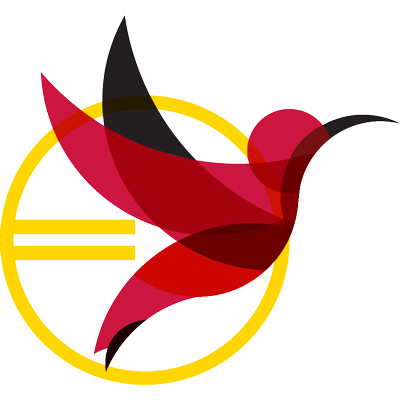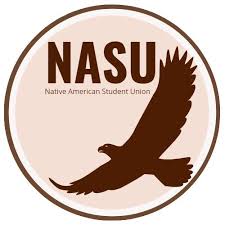The Major Program
The Major Program. Established in 1969, Native American Studies at UC Davis provides a unique inter-, multi-disciplinary approach to the study of sovereignty and autonomy of Indigenous peoples in the Americas. Bridging the humanities and social and natural sciences, the department offers courses and training in art, literature, linguistics, history, religious traditions, law, anthropology, environmental policy, political economy, ethnomusicology, performance and dance studies, and women, gender, and sexuality studies. The NAS major prepares students to be more informed members of society in relation to Native American and Indigenous peoples, their distinct histories and cultures, and their critical/creative interventions to transform their lives, their communities. The major introduces students to Native American/Indigenous Studies scholarship, and to a hemispheric understanding of sovereignty and autonomy regarding Indigenous peoples of the Americas.
A.B. Major Requirements (*Updated Fall 2025):
| Units | |
| Preparatory Subject Matter | |
| Choose two: NAS 001, NAS 002v, NAS 005, NAS 005v, NAS 010 or NAS 012. | 8 |
| Choose one: NAS 007, NAS 030, NAS 032, NAS 033, NAS 034, NAS 050, NAS 099 | 4 |
| OR one comparable lower division course from: African American and African Studies (AAS), Anthropology (ANT), American Studies (AMS), Asian American Studies (ASA), Chicana/o Studies (CHI), Gender, Sexuality and Women's Studies (GSW or WMS), History (HIS), Linguistics (LIN), Middle East and South Asian Studies (MSA), or another 4-unit lower division course selected in consultation with an advisor. | |
| Preparatory Subject Matter subtotal | 12 |
| Depth Subject Matter | |
| Theory & Methods | 4-8 |
| At least one is required but both are encouraged: NAS 146 & NAS 190 | |
| Language | 4 |
| Choose one: NAS 107, NAS 108, NAS 109, NAS 110A, NAS 110B | |
| OR: Substitute a field experience (NAS 192) for independent language learning | |
| Hemispheric Perspectives | 4 |
| Choose one: NAS 120, NAS 133B, NAS 171, NAS 175v, NAS 184, NAS 191 | |
| Experiential Learning | 4-12 |
| Combine as needed for a minimum of 4 units, up to 12 units: NAS 093, NAS 120, NAS 122, NAS 124, NAS 133, NAS 165, NAS 185, NAS 192, NAS 193, NAS 198, NAS 199 | |
| Upper Division Courses | 20 |
| Students take a variety of upper division courses in Native American Studies. Virtual & hybrid versions of all these courses may be automatically substituted for these requirements. | |
| Choose 5: NAS 101, NAS 115, NAS 118, NAS 119, NAS 121, NAS 123, NAS 123v, NAS 125, NAS 130A, NAS 130B, NAS 130C, NAS 132, NAS 134, NAS 135, NAS 157, NAS 161, NAS 180, NAS 181, NAS 182, NAS 183, NAS 188, NAS 191, NAS 196 | |
| Related Upper Division Courses | |
| By petition, the undergraduate advisor can approve up to three other relevant upper division courses of interest from other departments, particularly those from the recommended departments listed for the lower division elective, but open to any interdisciplinary interests of the student. Also with the approval of an undergraduate advisor, up to four courses (16+ units if semester-length) can be taken via UC Online from other UC campuses in this subject area. An unlimited number of online/"v" virtual courses taught by UC Davis NAS faculty can count towards the major. Virtual versions of any NAS classes developed in the future at UC Davis may be substituted. | |
| Depth Subject Matter subtotal | 36-44 |
| Total Units | 44-56 |
Students electing a major in Native American Studies enter through a variety of gateway courses in literature, history, art, language, and contemporary issues and then select among an equally interdisciplinary set of upper division options. The major requires at least one quarter study (or off-campus equivalent) of a Native language and at least one advanced course in theory or method. As a discipline born from social movements, we value and support community-engagement, experiential learning, and public-interest research. While all courses in NAS contain hemispheric elements, majors will enrich their comparative perspective with at least one class whose geographic orientation lies outside lands colonized and occupied by the U.S. settler state. The department also strongly encourages students to participate in the UC Education Abroad Program or Short-Term Programs Abroad, and/or seek independent work and collaborations with tribal governments, nonprofits, community movements, social justice projects, cities, campus initiatives, or state, national or global institutions that drive policies affecting Native and Indigenous peoples. See course descriptions in the UC Davis General Catalog for more information.
Major Advising. All new and prospective Native American Studies majors are encouraged to see the Student Affairs Officer individually, once per year, at minimum.
**************************************************
For questions and assistance, contact:
Student Affairs Officer: Jeremiah Thompson via phone (530)-752-6656, or email jthompso@ucdavis.edu
Lewis Lawyer, Assistant Professor, Undergraduate Student Advisor, lclawyer@ucdavis.edu
*Students who began the program prior to fall 2025 are eligible to complete their degree according to the previous requirements.

The Nest
Native American Academic Retention Initiative. The Nest promotes academic student success, building connections, and strengthening community. The Nest is a welcoming space and open to all students, The center provides a number of resources to students.

Native American Student Union
NASU empowers and supports the Native community at UC Davis. All UCD students are welcome.

